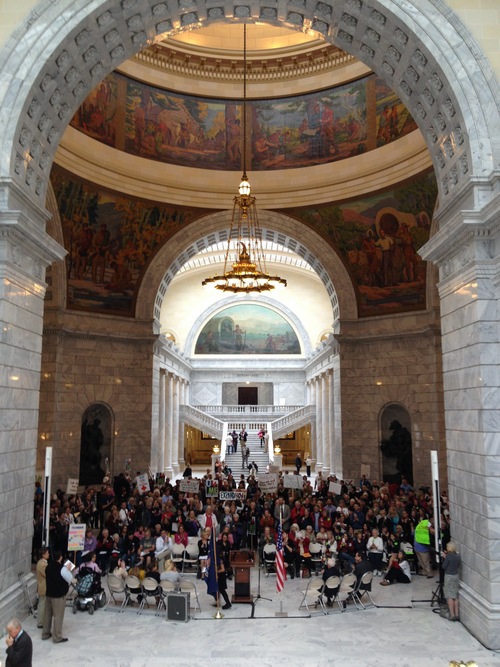This is an archived article that was published on sltrib.com in 2013, and information in the article may be outdated. It is provided only for personal research purposes and may not be reprinted.
Sometimes, when seeing the right thing is easy, finding reasons not to do it can take a lot of work.
Thus a great deal of effort has been expended by the Utah Legislative Health System Reform Task Force for it to come up with reasons why the state should not accept the challenge, and the federal money, to fully expand Medicaid health care coverage under the provisions of the Affordable Care Act.
It is an effort designed to make it easy for Gov. Gary Herbert to reject or downsize the Medicaid expansion option included in the ACA and, by so doing, uphold ideological dogma for the well off at the expense of human suffering, bankruptcy and death for the working poor.
The federal law, known to friends and foes alike as Obamacare, was and is a series of political compromises and leaps of faith designed to bring the United States somewhere within shouting distance of the civilized world's minimum standard of access to affordable health care while still allowing market-based private insurance companies a piece of the action.
One of the more straightforward parts of that attempt should have been the expansion of Medicaid. By stretching eligibility to households of up to 138 percent of the federal poverty level — or $32,000 annually for a family of four — it would fill the gap of low-income people stranded between those who have always qualified for Medicaid and those who either had employer-provided health insurance or could afford to buy their own.
It should have been. Except that the U.S. Supreme Court, apparently deciding that its counsel wouldn't be valued if it let Obamacare stand as written, swallowed the individual mandate and strained on the idea that states should be required to expand Medicaid. The result is a horribly cruel hodgepodge of states that have chosen to accept the expansion, or not.
Most states led by Democratic administrations have accepted it, as have such Republican-governed states as Ohio, Arizona, Nevada and New Mexico.
In those that have not, the number of working poor who will remain too rich to qualify for Medicaid and too poor to benefit from the tax subsidies available to those shopping on health care exchanges will reach, nationally, into the millions.
In Utah, those left uncovered, depending on whether the state totally opts out of the expansion or seeks waivers for a half-way step, will run into the tens of thousands.
Herbert has, depending on how you see it, either taken special care with a decision that is ultimately his or dragged his feet so long that the rest of us might lose interest.
The governor should now thank the legislative task force quite sincerely for their hard work, politely think about it just a little bit more and accept the full expansion of Medicaid.
Lives are in the balance.



